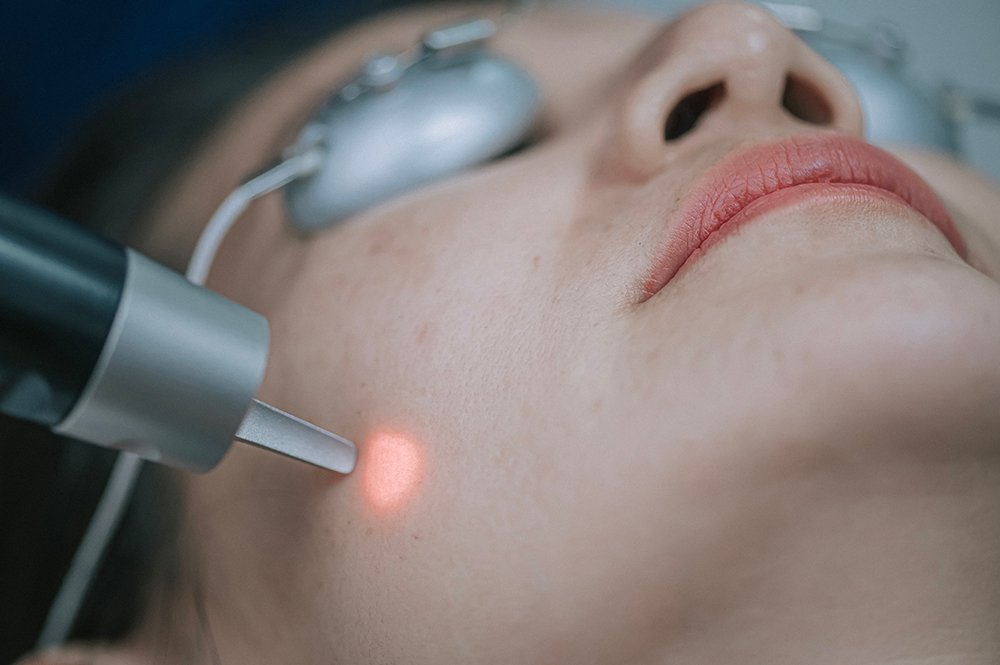Could Lasers Lower Skin Cancer Risk? Exploring the Science Behind Skin Treatments
Lasers have historically been recognized for their ability to smooth fine lines and diminish sun-related discolorations. Recent studies, however, suggest a more profound potential: could laser treatments also help reduce the risk of skin cancer? With millions of Americans facing skin cancer diagnoses annually, the prospect of leveraging laser technology for prevention is worth examining. Here’s what dermatologists have to say about this promising approach.
The Evolving Role of Laser Treatments
Lasers and Precancerous Lesions
Fractional lasers, such as Fraxel Dual and LaseMD, are gaining attention for their effectiveness in treating precancerous lesions. According to dermatologists, these devices excel in eliminating damaged cells before they can develop into more serious health issues.
“They really help with actinic keratoses,” notes Dr. Jacob Beer, a dermatologist based in West Palm Beach, FL. “Patients prefer this method over liquid nitrogen, which can often leave white spots or scarring.”
Benefits of Laser Treatments:
- Effective on Various Skin Tones: Fractional lasers are versatile and can be utilized across all skin types.
- Dual Treatment: They address both visible lesions and underlying damage that may not yet be apparent.
Furthermore, laser ablation techniques can serve as a non-invasive option for treating early basal cell and squamous cell carcinomas, making them a valuable tool in the dermatologist’s arsenal.
Technologies for Deeper Damage
Ablative laser technologies, such as CO₂ and erbium lasers, offer a more intensive treatment for widespread sun damage.
Dr. Jeanine Downie from Montclair, NJ, emphasizes: “These devices definitely help with sun damage and actinic damage in the skin,” though she cautions that they are not a replacement for regular check-ups.
Understanding the Limitations of Laser Treatments
While lasers show promise for managing certain types of skin damage, not all skin cancers respond effectively to this treatment.
Effective For:
- Actinic Keratoses: Precancerous skin patches.
- Basal and Squamous Cell Carcinomas: Non-melanoma skin cancers.
Ineffective For:
- Melanoma: Lasers are not beneficial for treating this type of skin cancer, as Dr. Janice Lima-Maribona from Miami points out. “For melanoma, resurfacing lasers are not helpful.”
This distinction highlights the need for ongoing dermatology consultations, particularly for patients with a history of skin cancer.
The Current Landscape of Research
The potential for lasers in skin cancer prevention is still under investigation. Dr. Beer acknowledges that while existing studies are promising, they’re far from comprehensive.
“There are only a handful of studies, and we’re on the early side of proving long-term prevention,” he indicates.
At present, laser treatments should be viewed as a complement to established prevention strategies, such as regular skin examinations and diligent sun protection.
The Importance of Traditional Prevention Methods
Despite the advances in laser technology, the fundamental principles of skin care remain paramount.
Key Recommendations for Skin Protection:
- Daily Sunscreen Use: Experts recommend an SPF of 30 or higher, ideally one that includes iron oxide for protection against visible light.
- Awareness of Indoor Risks: Day-to-day exposure to blue light from screens and infrared heat from appliances contributes to cumulative skin damage.
As Dr. Downie notes, “While laser treatments can help erase some past damage, they don’t grant a reprieve from sunscreen.”
Conclusion: A Combined Approach
Lasers are emerging as a valuable tool in the fight against skin cancer, especially for reducing the incidence of precancerous lesions. They do not, however, eliminate the necessity for routine skin checks or robust sun protection measures. For individuals with significant sun exposure and skin damage, fractional and ablative lasers may provide an essential component for long-term prevention strategies.
As you consider your skin care routine, remember: proactive prevention combined with innovative treatment may be the key to healthier skin in the long run.


